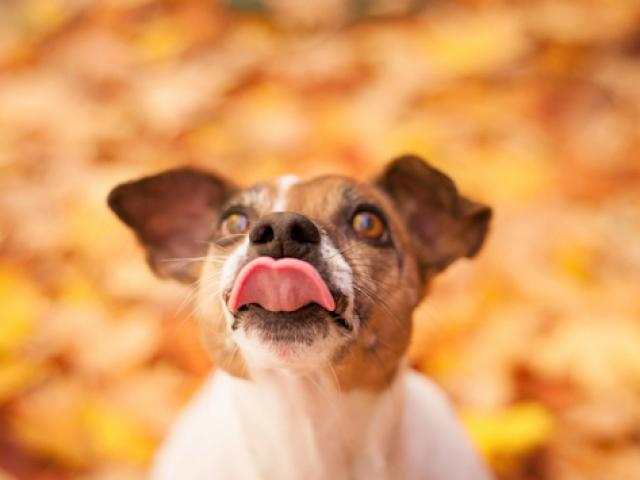
The habit of the pup licking air may continue for longer every day. As a result the dog may lick the air every time it feels anxious or stressed.

However if a dog does not seem anxious air licking may be a sign of physical illness.
Why would a dog constantly lick the air. Dogs licking air is usually a sign of stress. By engaging in air licking the dog stimulates its brain to release endorphins that have a soothing effect. As a result the dog may lick the air every time it feels anxious or stressed.
The habit of the pup licking air may continue for longer every day. Here are five potential reasons why your dog is licking the air. Something Is Stuck to the Roof of Their Mouth One reason that dogs may appear to be licking the air is because they have something lodged inside of their mouth or stuck to the roof of it.
There are a variety of reasons why dogs lick the air and some can have serious health consequences. Normal reasons include hunger and thirst while abnormal causes include nausea pain oral trauma or dental disease just to name a few. There can also be systemic causes for dogs to lick the air such as secondary to seizures.
There are various reasons your dog may be licking the air but the fact that she does it for long periods of time is suggestive of a possible compulsive disorder. In the early stages the licking will only happen when the dog is triggered by a stressful situation. For example they only lick the air when the family is being extra loud or when guests come over.
Over time however the compulsive behavior starts happening more often. This makes it harder to determine what the dog is actually stressed about. Dogs may lick the air and snap at the air during a partial seizure.
This is because seizures cause abnormal electrical activity in the brain that in turn triggers abnormal muscle reactions. Your vet will be able to help if your dog is suffering from seizures. With medication it may be possible to prevent them altogether.
Sometimes the dog will simply extend its tongue quickly and appear to be licking the air. At other times the dog may drop down to the floor and nervously lick at its own paws or body. Up to 20 cash back My dog keeps licking the air vents even when the air is not blowing out.
She actually made one of them rust and we - Answered by a verified Dog Veterinarian We use cookies to give you the best possible experience on our website. Many dog owners view dogs licking as a sign of affection similar to kissing. Obsessive licking may be a sign of underlying issues including anxiety boredom or fear.
Trick training is an. Dogs who lick faces arent always being affectionate. If its your face being licked it could be related to something you just ate.
Dogs will typically lick each others faces as a sign of deference or affection. Sometimes they will lick because they smell leftover food particles in the other dog. When a dog starts to lick the air or their lips continuously you should start taking note of their behavior to determine why.
Normal Reasons They Could be Licking the Air or Their Lip s Lip licking is a normal behavior displayed in many animals including dogs. Some dogs tend to lick their lips more than others and most pet owners worry when the licking becomes excessive or is a new behavior. Dog licking and swallowing can be a symptom of a medical problem behavioral problem or a normal behavioral communication tool.
Causes of Licking and Swallowing in Dogs. Not only does excessive licking cause discomfort for your dog but it is often due to an underlying medical problem. Often times excessive licking of the paws is due to one of three underlying causes.
Atopy the equivalent of hay fever in people. These compulsive behaviors include air licking chomping at the air spinning and pacing generally in direct response to triggers that make the dog nervous. However if a dog does not seem anxious air licking may be a sign of physical illness.
VetStreet lists several health concerns that share air licking as a common symptom. Excessive licking typically of the air can also be a symptom of nausea which can be associated with more serious illnesses in older dogs. Nausea can trigger the production of excess.